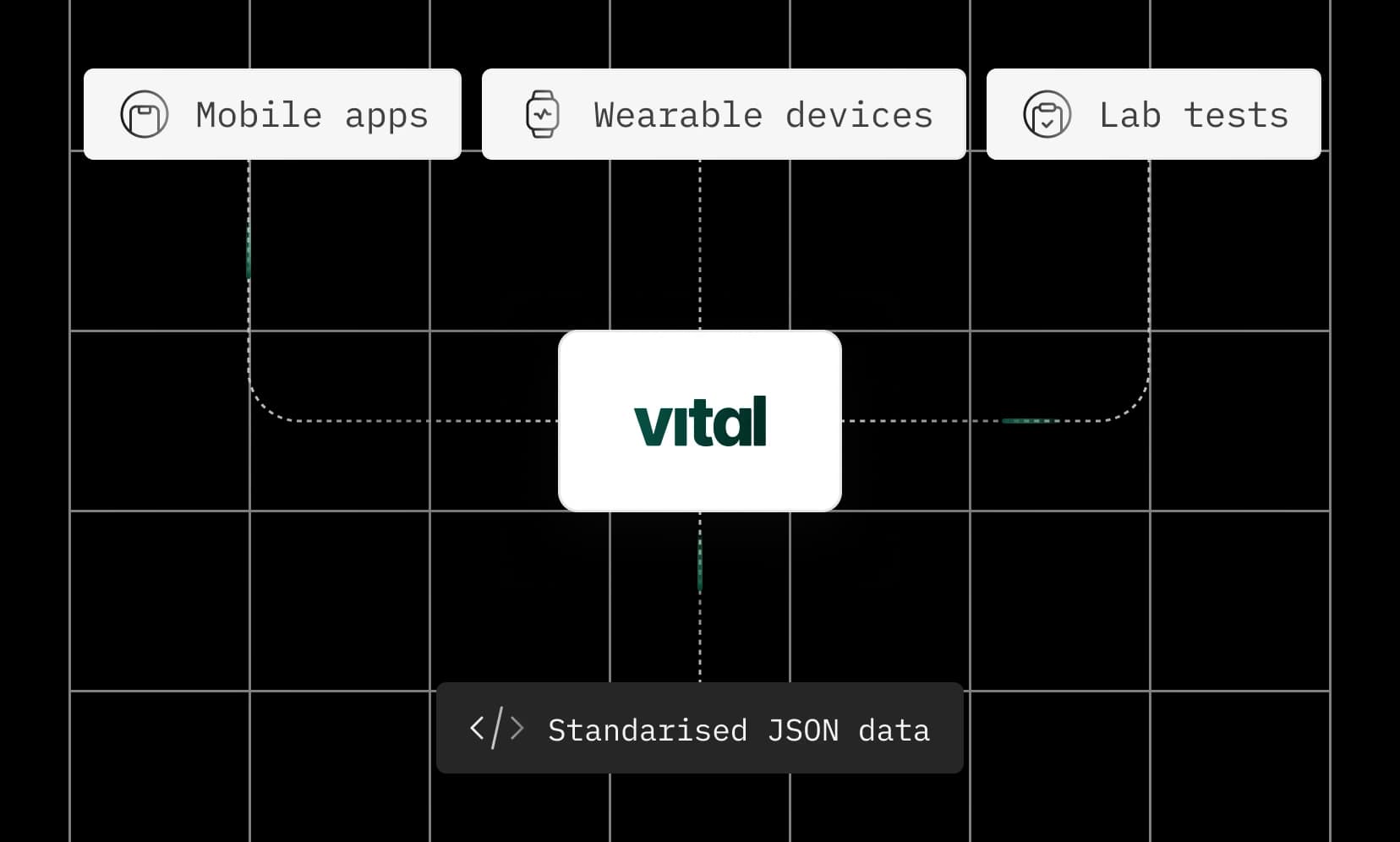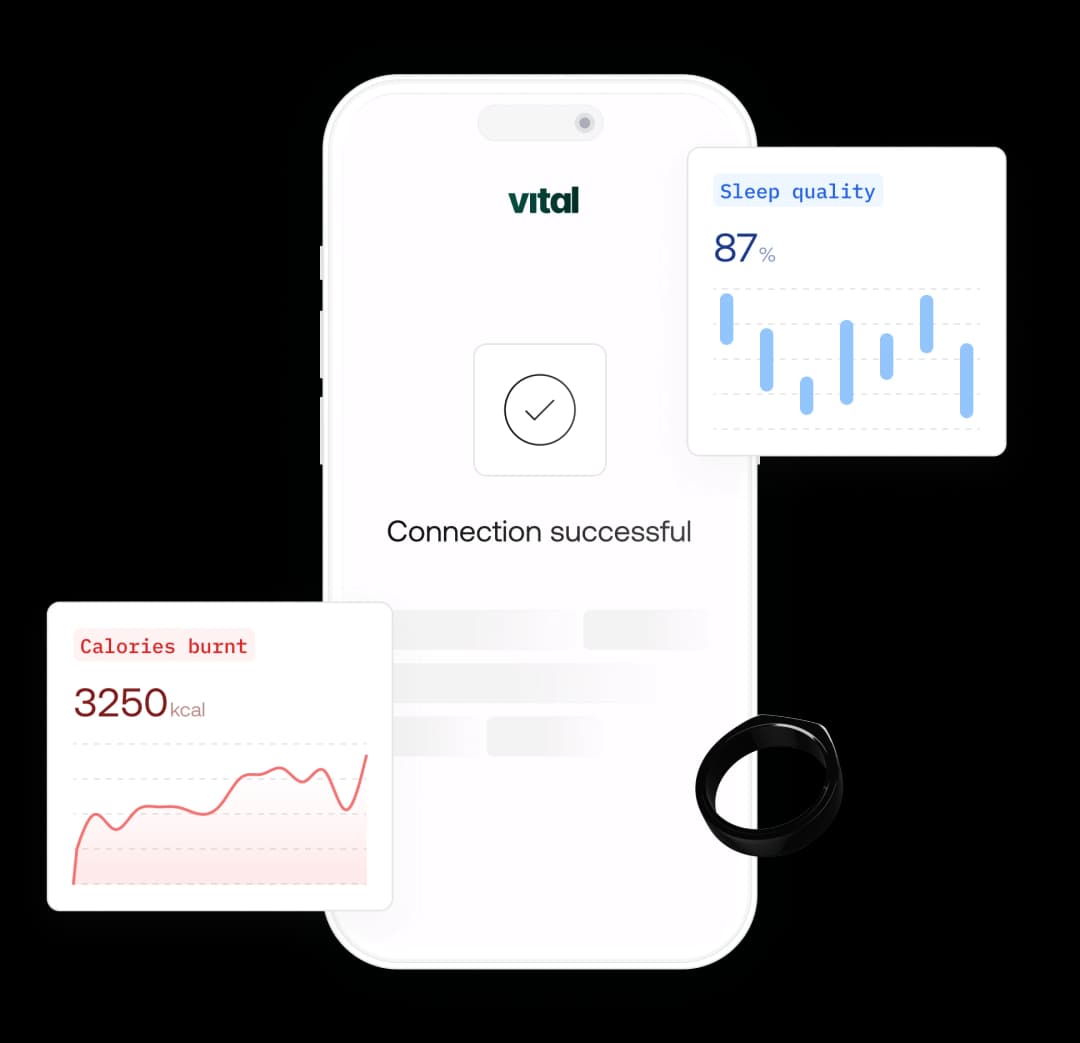Wearables
Fitbit API
With the Fitbit API you can connect to your Fitbit account and retrieve fitness data from your Fitbit devices. Vital makes it easy to connect to the Fitbit API and retrieve your data.
Step 1
First steps to integrate with Fitbit
Step 2
What data does Fitbit provide?
All data from Fitbit is provided in JSON format. Vital consists of three main schema types that it uses to push data to your webhook url. These schema types can be found here. You can filter these events to receive specific resource types, via webhook. The full list of available resources for Fitbit can be found below.
activity
blood_oxygen
body
body_temperature
body_temperature_delta
calories_active
distance
fat
heart_rate_alert
heartrate
hrv
hypnogram
profile
respiratory_rate
sleep
sleep_cycle
sleep_stream
steps
vo2_max
water
weight
workout_stream
workouts
Fitbit Webhook Payloads
daily.data.activity.created
daily.data.blood_oxygen.created
daily.data.body.created
daily.data.body_temperature.created
daily.data.body_temperature_delta.created
daily.data.calories_active.created
daily.data.distance.created
daily.data.fat.created
daily.data.heart_rate_alert.created
daily.data.heartrate.created
daily.data.hrv.created
daily.data.hypnogram.created
daily.data.profile.created
daily.data.respiratory_rate.created
daily.data.sleep.created
daily.data.sleep_cycle.created
daily.data.steps.created
daily.data.vo2_max.created
daily.data.water.created
daily.data.weight.created
daily.data.workout_stream.created
daily.data.workouts.created
historical.data.activity.created
historical.data.blood_oxygen.created
historical.data.body.created
historical.data.body_temperature.created
historical.data.body_temperature_delta.created
historical.data.calories_active.created
historical.data.distance.created
historical.data.fat.created
historical.data.heart_rate_alert.created
historical.data.heartrate.created
historical.data.hrv.created
historical.data.hypnogram.created
historical.data.profile.created
historical.data.respiratory_rate.created
historical.data.sleep.created
historical.data.sleep_cycle.created
historical.data.steps.created
historical.data.vo2_max.created
historical.data.water.created
historical.data.weight.created
historical.data.workout_stream.created
historical.data.workouts.created
Step 3
Receiving Data via Webhooks
Fitbit data is updated in real-time. Once a user connects their account, you will receive a webhook event with the data. You can also query the data via our API. New data in most cases for Fitbit is provided in real-time. Vital guarantees all new data to be available within 15 mins of the data being recorded. A refresh for new Fitbit data can also be requested via our refresh API.
View all Event Payloads
Step 4

Historical Harmonized Data
Fitbit data is always standardized and harmonized using Vital's standardized schemas. This means you can query historical data for any user via HTTP requests and receive historical data prior to connecting devices using Vital. Full list of historical data and how much data is retrieved for Fitbit can be found below.
Start fetching health data from wearables and lab tests.
SOC 2 Type I
HIPAA Certified
GDPR Ready